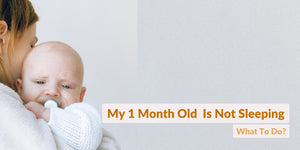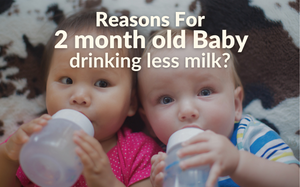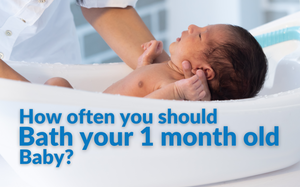Jaundice in newborn diagnosis is a very common occurrence that always stresses out new parents. A yellowish hue to the skin and eyes is seen in jaundice, which is caused by an increase in the levels of a chemical called bilirubin in the blood. Bilirubin gets deposited under the skin and in the whites of the eyes, giving them a distinct yellow tint.
Is it normal for newborn babies to have jaundice?
Surprisingly, yes, it is normal for newborn babies to have jaundice. Newborns have a large number of red blood cells in their bodies when they are born. These red blood cells break down soon and form bilirubin, an orange-yellow substance. The liver clears the bilirubin through poop and urine. However, if the liver of the newborn is not able to remove all the bilirubin from the body, the excess bilirubin is deposited in the skin and eyes of the baby, causing jaundice.When will jaundice go away in newborn babies?
Typically, symptoms of jaundice are seen in the first week after birth and settle within two weeks; such jaundice is usually harmless. However, if jaundice is seen in the first 24 hours of life, a detailed evaluation is required to determine the cause.Babies that are born prematurely are at an increased risk of developing jaundice as their liver may not be well developed. Breastfed babies also show a higher incidence of jaundice.
How to diagnose jaundice in a newborn?
If your baby has jaundice, the white part of the eyes and skin will appear yellowish. Also, your baby may not feed very well and could be cranky all the time.Doctors should be able to identify jaundice with a physical examination and by checking levels of bilirubin in the blood. It is essential to find out the bilirubin levels in the baby’s blood to decide whether the baby needs medical intervention.
What are the treatment options?
Your baby’s age and bilirubin levels will help the doctor decide the jaundice in newborn baby treatment. Low levels of bilirubin (mild jaundice) do not need treatment.Mild jaundice clears on its own as the liver function of the newborn improves over the next few days. If the bilirubin level is high, babies may need to be treated with:
Fluids
Dehydration can lead to an increase in bilirubin. Therefore, increasing the fluid in the body helps lower the bilirubin level. Doctors encourage frequent feedings and may suggest supplementing breast milk with formula. In rare cases, babies may be given extra fluids intravenously.
Phototherapy
Babies are exposed to special lights while wearing minimal clothing. The special lights convert bilirubin into another form that can be easily removed via urine and poop.
Exchange transfusion
In rare cases of jaundice in newborn baby treatment, if the child’s bilirubin is very high and phototherapy does not lower its levels adequately, then a blood transfusion may be needed.How can you help your baby?
When your newborn baby has jaundice, the key is to not panic and help your baby in all possible ways:- Take a look at your baby’s skin and eyes twice a day to make sure that the yellow colour is becoming lighter.
- Make sure that your baby is well fed. If you are breastfeeding, make sure to feed your baby about 8–12 times a day. If you are giving formula milk, stick to the prescribed schedule (usually 6 to 10 feeds per day).
- Follow up with the doctor regularly as recommended.
- Consult your doctor if your baby’s skin gets more yellow after three days of birth, is sleepier than usual, is cranky or does not act normally, is not nursing well, or if jaundice continues for more than two weeks.
Following these jaundice in baby tips will go a long way towards helping your little one recover rapidly. And you can rest easy, knowing that your baby is healthy and growing well!
References:
- Cleveland Clinic. Why it’s best not to worry if your baby has jaundice [2020].
- Gavin ML. Jaundice in newborns [2020].
- MedlinePlus. Newborn jaundice [2020].













LEAVE A COMMENT